
I had first read the book years ago; it was one of those we were obliged to study in school for English Literature and our teacher at the time appeared to like neither books nor children. The volume, duly dissected for language rather than content, history or context, was mentally filed under those I am glad I had read once but would never read again.
I tend to remember books by ‘feel’ before any kind of detail. This one had left a dark, sad taste. It was like unpleasant medicine… you knew it was good for you but you wouldn’t take more than you absolutely had to. You certainly wouldn’t take it for pleasure.
Several years later and still very young but with a slightly wider view of the world, I saw the film. I understood the underlying issues better when I could bring more to the table myself, so I went out and bought myself a copy of Harper Lee’s ‘To Kill a Mockingbird’ and I read it in one sitting. Then I read it again.
I began to understand why the first reading had left such a bad taste in my mind and there were two main reasons that I could see;the age at which the book had been read in school was, of course, far too young to really understand the deeper moral and social implications of the rape, violence and prejudice that were detailed in the main plotline. It was, however, an ideal time to introduce them for deeper consideration, with young adulthood fast approaching and a world waiting for us to grow into it.

The other problem was the teacher. Yet it was a perfect illustration of a quote from the book:“You never really understand a person until you consider things from his point of view… Until you climb inside of his skin and walk around in it.”
Looking back he was probably against neither books nor children… but he was of a much older generation and in hindsight, close to retirement even then. He had been clearly uncomfortable with the discussion of the subject matter surrounded by a room full of teenage girls. He was also our teacher for religious education and had deeply held beliefs that must have conflicted with many of the ideas we were raising. Every time we approached a particularly contentious passage we were moved from discussion to grammar. It must have been as painful for him as for his students to study that book. That, of course, I had never considered before.
We tend not to do that, as a rule… to go back and reassess our judgement of people or situations from that angle. It may be that we were right… but we are bound to have got things wrong at some point. We may go back in memory and pull our own behaviour to pieces, cringing at past actions that we cannot change. We may go back and reinforce our initial judgement of an event or person, but we seldom seem to revisit a scenario with the intention of finding out if we were the ones who saw things imperfectly. We form an opinion based on experience at the time of an event and make up our minds accordingly, never thinking that the future may change our perception; seldom thinking to look back and wonder if we had really understood someone or not.

We all know we ‘should not’ judge. We all judge all the time, even if we prefer to skirt around the issue by calling it by different names. Those judgements, conscious or unconscious, form the basis upon which we ourselves move forward and they colour our own futures whether we realise it or not.
Yet we learn and grow, constantly changed by the lives we live and such wisdom as we acquire. The hard edges of youth or anger may be softened by compassion as we understand more of human nature through our own mistakes, gaining insight into different motivations than those we may have attributed to others in the past.
When all is said and done, if we make a personal judgement about another’s actions it can, as in Harper Lee’s story, end in tragedy. More often than not, however, our assessments are purely personal and internal, remaining unspoken… possibly even unacknowledged. In such circumstances we ourselves may be the ones most hurt by our own erroneous judgements as we allow the future to unfold based upon them.
It is not possible to go back and change where the future begins nor to undo the mistakes we have made. It is, however, possible to let go of misconceptions, to change our perception of the past through compassion and allow ourselves to move forward from this point, from a place of greater understanding .By altering the angle of perception for a single point, many things may seem to change and shadows clear. We can forgive our less experienced self for getting things ‘wrong’ as well as letting go of old grievances that no longer serve; it lightens the load considerably.
So looking back tonight I admit I may have misunderstood my teacher where Harper Lee was concerned. Now I just have to work on why he had to ruin Dickens…
Images Wikipedia


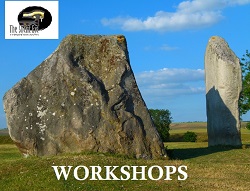



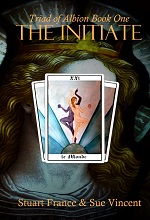


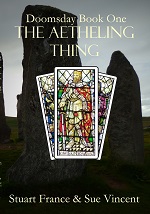
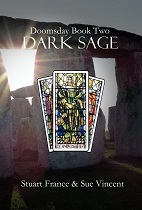








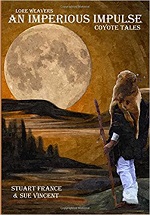


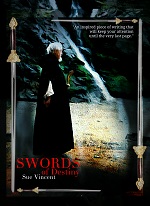

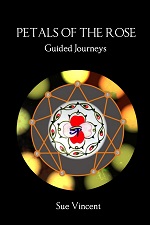






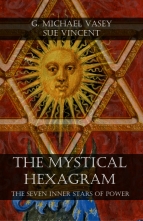

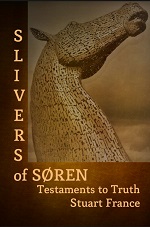


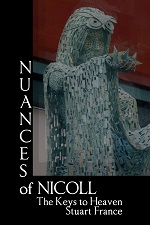


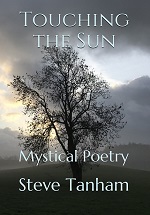

I didn’t read “To Kill a Mockingbird” until I was an adult. It’s one of my all time favorites.
LikeLike
I could wish I hadn’t either…
LikeLike
There was an actual BLUEBIRD (!) in the bird feeder this morning! I haven’t seen one of those for years and years… global warming pushing them west and north? Don’t know, but it grabbed my heart!
LikeLike
We don’t have them here.. or mockingbirds.. and our jays are pinkish. Your bluebirdslook incredible with the colours of their plumage.
LikeLiked by 1 person
It is the male Mountain Bluebird:
http://www.coloradobirds.info/bluebirds.php
LikeLike
Oh now he’s just gorgeous!
LikeLiked by 1 person
Isn’t he? I still miss cardinals though…
LikeLike
We don’t get those either… most of our birds are less exotic in colouring, though equally beautiful.
LikeLiked by 1 person
Enjoyed this post, and the last line gave a laugh. I’m looking forward to hearing your thoughts on Dickens. I love this book, and am now tempted to re-read as I haven’t read it in years. Made me look up one of my favourite quotes, “Courage is not a man with a gun in his hand. It’s knowing you’re licked before you begin but you begin anyway and you see it through no matter what. You rarely win, but sometimes you do.” – spoken by Atticus. Thanks for the inspiration, H xxx
LikeLike
That quote from Atticus was the one that set me off on this post! I got a bit sidetracked though…xxx
LikeLike
I love a bit of synchronicity:-) xx
LikeLike
Can’t beat it 🙂
LikeLike
Thanks for this post on one of my favorite books. When my daughter was ten, she wanted to read To Kill a Mockingbird for a school project. The administration told her teacher that it wasn’t “appropriate” for her age group, and refused to let her check it out of the school library. The teacher brought in her personal copy, signed it, and gave it to my daughter as a present. She still has that book, she still reveres that teacher, and she still knows the importance of both great reading and great teaching.
Thanks so much for the blog follow too. It means a lot to me.
LikeLike
That is exactly the type of teacher that is needed! What lovely story.
You are most welcome, Barb. I’m going to follow anyone who heads their blog with ‘especially coffee’ 🙂
LikeLike
Sue, this post made me think of the huge influence of teachers on our lives. Both my sibs are teachers and they have certainly given me a whole new insight into the profession BUT I still can’t even begin to imagine either of them in front of a class ~ both English teachers, as it happens!!!
LikeLike
Some of my best friends are teachers… such an important job, and those who can bring a subject to life for a child give them the gift of a lifetime.
LikeLike
Possibly the most important job there is.
LikeLiked by 1 person
Ruining Dickens! What possible circumstances could mitigate that crime?
LikeLike
I’ve never understood it, Pete…
LikeLike
It’s a hard one for me to understand as well, Sue, as Dickens was such a support and consolation for me at various testing times in my life.
LikeLike
It took me years to be able to pick up Dickens and read with different eyes.
LikeLike
I suspect that quite a lot of English teachers all across the country ruined quite a lot of perfectly good books Sue 🙂
LikeLike
The nature of dissection, I suppose …
LikeLike
I love the wisdom and compassion in this post!
Did you take the photos? They are marvelous – I didn’t know that England has the same birds – bluejays and mockingbirds – that we do.
LikeLike
Thank you, Eliza. No, the pictures are credited to Wikipedia.. we don’t have mockingbirds here, and our jays are pink with blue markings.
LikeLike
Pink with blue markings? I had to look that one up! What a beautiful and striking bird. Thanks!
LikeLike
They are lovely… seldom seen but I was lucky enough to be able to watch one th other day.
LikeLike
I too had a less than encouraging English teacher in my middle years at school – ‘Compare and Contrast!’ was her mantra haha I can remember her name too, such was her influence. She sucked the joy out of it all, bless her. Now I can look back and see it was probably just the menopause, a less than inspiring curriculum and a loss of motivation on her part, perhaps. Oh gosh…Chaucer *cold sweat* 😉
LikeLike
It’s good to be able to look back with a kinder vew, but oh what missed opportunities for breathing the life into such classic works!
Mind, Chaucer needs a fair amount of encouragement 😉
LikeLiked by 1 person